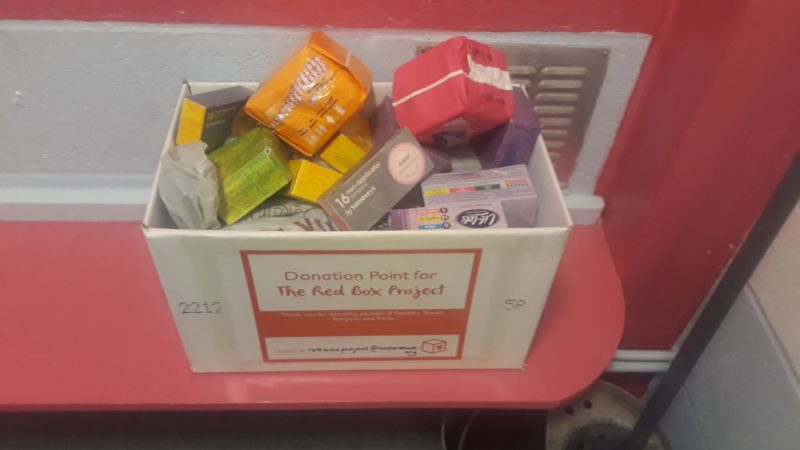Thanks to some amazing campaigners, period poverty is on its way out.

Today is Menstrual Hygiene Day, which takes place on 28th May each year. The day raises awareness of the importance of menstrual health and highlights the issues faced by those who don’t have the access they need to period products.
Since last year, the work to eradicate period poverty has come on significantly.
In Brighton & Hove, the council has supported the amazing Red Box Project to provide red boxes in all schools throughout the city.
I was inspired to see how they recently reached their 50th box and are working closely with businesses and the community sector to make change in our city.
Nationwide, the government have since announced funding for boxes in all primary schools, along with changes to the sex and relationships education curriculum.
These wins are bold and as a result of so many remarkable campaigners – so it’s right that this year’s Menstrual Hygiene Day theme is to celebrate the outstanding wins so far.
How far we’ll go
While we can celebrate how far we’ve come, we also need to recognise how far we have to go.
There is still a great stigma around menstruation. Plan International UK’s break the barriers report found that 48% of girls feel embarrassed by their period and the issue is still seen as a taboo topic.
By seeing periods as a taboo, we fail to break down misconceptions surrounding them and myths continue to perpetuate.
As a society, we need to recognise that periods are a topic of discussion. They aren’t dirty. They aren’t disgusting. They’re a natural thing and our experiences are worth sharing.
The more we discuss, the more we can prevent them from being a public health issue, as people who menstruate learn what is normal and what needs a look at.
Expanding discourse and action
A lot of the discourse around period poverty has focussed on supporting young people in schools.
This is important and achieving many wins in tackling the issues, but I believe we need to focus our net wider.
In a similar way to how children with access to free school meals can end up with ‘holiday hunger’, making sure that there is access to period products for all outside of the classroom is crucial.
People experiencing homelessness or living on benefits can also struggle to access the period products they need.
We can tackle this in part by expanding the discourse and the action we take on periods and period poverty.
The discussion around periods often fails to recognise the intersections. It often leaves transgender people and disabled people out of the conversation.
Enviromenstrual
Beyond taboos and the wider conversation, there are still changes our government and companies who make period products can make.
Some estimates place people who menstruate using more than 11,000 disposable period products in their lifetime.
There are now reusable products becoming available – but personal preference restricts some from using these.
Campaigning should focus more on the companies who make these disposable products and make a huge profit from these products.
They must be encouraged into making the materials they use for single-use period products biodegradable.
Green assembly member Caroline Russell has raised the issue of the environmental impact of unflushables in the London Assembly.
We now have more elected Greens than ever before – and with this we can question and force for these changes to be made.
The advancements we’ve had so far highlight the importance of people other than men as decision makers.
As women and other marginalised genders change politics and enter council chambers throughout the world, we’ve raised the voice of issues that affect us.
How far we’ve come is huge – but we’ve got a long way to go!
Hannah Clare is a green councillor for Brunswick and Adelaide ward in Brighton and Hove. She is currently Deputy Convenor of the Green Group of councillors. She was previously Co-Chair of the Young Greens of England and Wales.
Left Foot Forward doesn't have the backing of big business or billionaires. We rely on the kind and generous support of ordinary people like you.
You can support hard-hitting journalism that holds the right to account, provides a forum for debate among progressives, and covers the stories the rest of the media ignore. Donate today.



